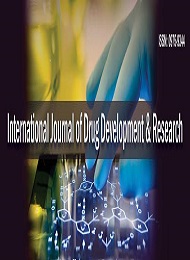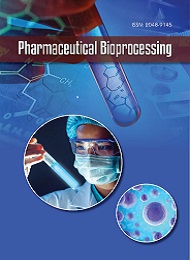Webinar on Pharmaceutical research 2022 welcomes each one of you to attend a global conference in the field of Pharmacy which is held on January
3, 2022. The webinar emphasizes the theme “Innovations & Advancements in Pharmaceutical Sciences”. Pharmaceutical Science Webinar provides an international dais for Scientists and Pharmaceutical professionals to Exchange Ideas, Knowledge and Networking. Knowledge of the concepts of drug metabolism is useful in both the design of new drugs and the improvement of existing drugs.
Thus it affects the living life in an effective way. This is the platform where you can exchange your ideas and learn novel concepts related to your field from the international speakers as well as the professionals participating in this symposium. We want to take every individual related to this field either to learn or share your experience in this field and improve your connections from the entire globe.
It’s important to share knowledge with others due to newly generated problem. For that they need a platform to share their knowledge. We could say we create a golden opportunity for those people expose their knowledge through this Pharmaceutical Science Meeting.
Be the first to showcase your research, innovation and brand to gain competitive advantages. Meet your target audience and explore your product and services.
Pharmacology is a part of medication which manages the medications and their connections with the bases and the procedures of every living organism. Applied Pharmacology is a branch of pharmacology which comprises all the applications of pharmacology & toxicology. It mainly involves the branches like the pharmacogenetics, clinical pharmacology, and pharmacotherapeutics. Applied pharmacology is the utilization of the medicines and just how the pharmacological activities or data might be related to the therapeutics. Pharmacometrics branch which deals with both pharma and maths. Pharmacometrics deals with mathematical models of pharmacology, biology and physiology in clinical and preclinical studies. Pharmacometrics uses drug models to describe the relationship between pharmacokinetics and pharmacodynamics. Pharmaco metrics involves the analysis and interpretation of data in pre-clinical and clinical trials.
Bioavailability is the degree and rate at which a substance (such as a drug) is absorbed into a living system or is made available at the site of physiological activity. Bioavailability is an essential measurement tool since it determines the correct dosage for non-intravenous administration of a drug. In clinical research trials, the bioavailability of a drug is a key factor to be measured in Phase 1 and Phase 2 trials
Bioequivalence is the property wherein two drugs with identical active ingredients or two different dosage forms of the same drug possess similar bioavailability and produce the same effect at the site of physiological activity. Bioequivalence is determined by pharmacokinetic studies to determine whether a commercially available brand product and a potential to market generic version share core attributes. Determining the absolute bioavailability of a drug is done through a pharmacokinetic study.
Cardiovascular Pharmacology is a part of pharmacology that arrangements with the drug’s use to cardiovascular diseases. Several classes of cardiovascular agents are accessible to treat the different cardiovascular conditions. It essentially contributes to the safety profile of potential new drugs and provides pharmacological data that can be used for optimization of further compounds and the ultimate selection of compounds suitable for clinical development. Medicines that are utilized to the cardiovascular disorders are Anti-coagulants, Beta blockers, calcium channel blockers, Diuretics, Vasodilators.
Clinical research is a branch of healthcare science that determines the safety and effectiveness (efficacy) of medications, devices, diagnostic products and treatment regimens intended for human use. These may be used for prevention, treatment, diagnosis or for relieving symptoms of a disease. Clinical research is different from clinical practice. In clinical practice established treatments are used, while in clinical research evidence is collected to establish a treatment.
Drug discovery and development together are the complete process of identifying a new drug and bringing it to market. Discovery may involve screening of chemical libraries, identification of the active ingredient from a natural remedy or design resulting from an understanding of the target. Development includes studies on microorganisms and animals, clinical trials and ultimately regulatory approval.
Glioblastoma (GB)represents 48% of all primary central nervous system (CNS) tumors. Despite the multimodal therapy, based on surgery, radiotherapy, and chemotherapy, and the improvements in each approach, GB remains characterized by a poor prognosis, with a mean overall survival of less than 6% at 5 years post-diagnosis Currently, the first-line systemic treatment is represented by temozolomide (TMZ), but most patients relapse after six months. Re-challenge with TMZ or administration of lomustine, carmustine, vincristine, procarbazine, or anti-angiogenic drugs such as bevacizumab are rescue therapies, but they have low success


